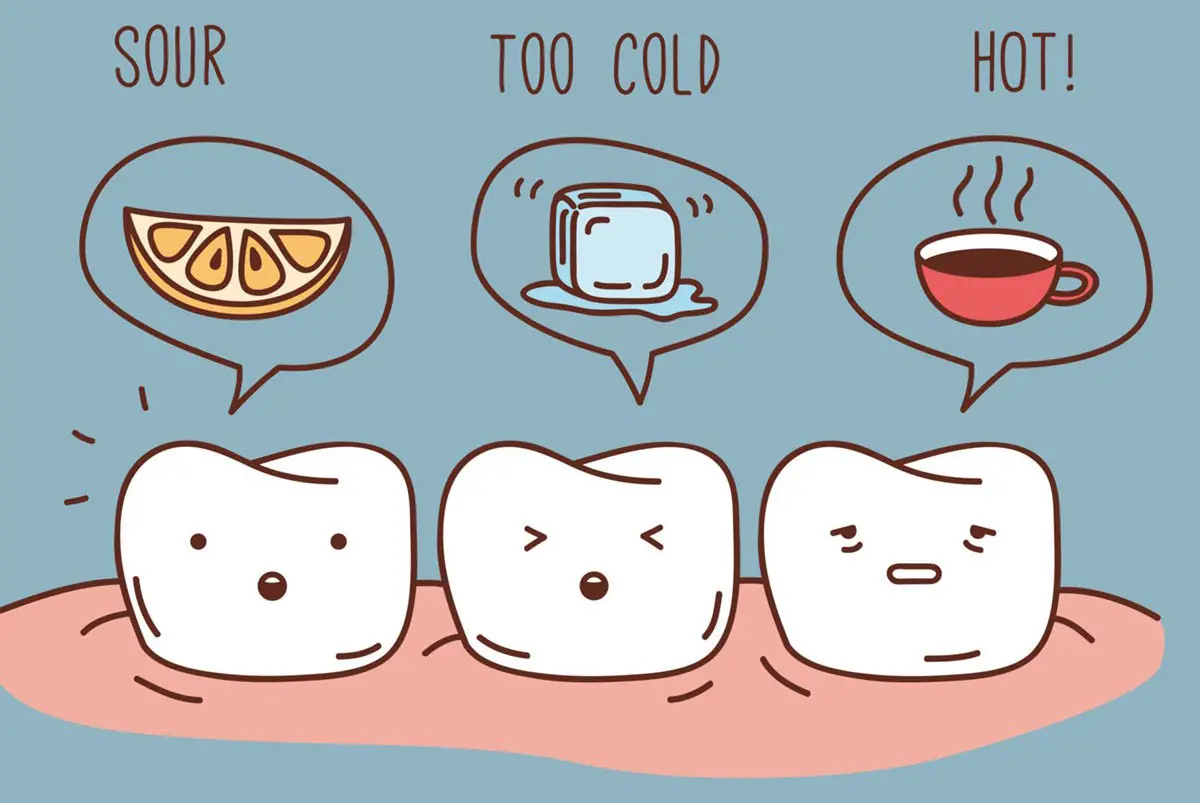Submit Request ...
-
Forums
What is the cause of tooth sensitivity when drinking hot liquids?

What is the cause of tooth sensitivity when drinking hot liquids?
There are several potential reasons for your tooth sensitivity, such as:
✓ Tooth decay
According to the World Health Organization (WHO), the level of tooth decay in the United States and the rest of the Americas is very high due to the high levels of sugars and fermentable carbohydrates consumed. When these things are not removed from your teeth, bacteria feed on them and form plaque. Allergies to hot and cold foods are often a warning sign that a cavity is forming and it's time to make an appointment with your dentist.
✓ Worn tooth enamel
The outer layer of your teeth is a protective surface called enamel. Unlike cavities, erosion is not caused by bacteria. Tooth enamel can be eroded by acid reflux, bulimia, chronic vomiting from pregnancy, alcoholism, acid or sugary diet, can weaken with age, and if you are a regular swimmer, chlorine can stain your teeth. wear you down According to the American Dental Association, there are also industrial and occupational hazards that can erode tooth enamel.
✓ Cracked tooth
A broken or cracked tooth can expose the nerves inside your tooth and cause increased sensitivity.
✓ Worn or loose fillings
If a filling wears, cracks, or loosens, it may no longer be effective in protecting the nerves below the decayed tooth.
✓ Gum disease
According to the Centers for Disease Control and Prevention (CDC), nearly half of adults over the age of 30 in the United States have gum disease. This bacterial infection can cause gum inflammation and tooth sensitivity. If left untreated, this condition can affect the tissue and bone that supports your teeth, causing them to loosen or even fall out.
✓ Gum recession
When your gums recede, the layer of cement that covers your roots can wear away, exposing the sensitive layer of dentin underneath. Some of the causes of receding gums include gum disease, excessive brushing, tobacco use, misaligned teeth, grinding teeth, and orthodontic work.
✓ Infection
In some cases, sensitivity can be the result of a deep infection in the tooth. If this is the cause of your sensitivity, your dentist may suggest a root canal. According to the American Association of Endodontists, "25 million root canal procedures are performed annually."
Things you can do to treat tooth sensitivity
In some cases, the causes of tooth sensitivity can be reversed by observing oral hygiene.
- Brush your teeth at least twice a day.
- Clean between your teeth at least once a day with an interdental brush or dental floss.
- Use an antimicrobial mouthwash and tongue scraper.
- Be sure to see your dentist for regular checkups so they can detect any developing disease early.
Depending on the cause and severity of the disease causing your tooth sensitivity, your dentist may recommend toothpaste or mouthwash for sensitive teeth. These products contain ingredients that can help numb nerve endings and strengthen tooth enamel.
When should you seek professional treatment?
According to the American Association of Endodontists (AAE), see your dentist if your sensitivity persists for more than 30 seconds after contact with extreme temperatures, or if your tooth pain is persistent or severe. These are all signs that you may have a cavity, exposed nerve, infection, or severe gum disease that requires professional treatment, which may include:
Inlay, bonding or crown placement
If you have a broken, damaged, or decayed tooth, your dental professional may repair it with one of these methods.
- Use of fluoride gel
Fluoride gel strengthens your tooth enamel and reduces the number of pain signals sent to the brain.
- Root canal method
Your dentist may perform a root canal procedure to remove the infected or inflamed pulp in the center of the tooth where the nerves and blood vessels are. Then they fill and seal it.
- Surgical gum grafting
If your gums are receding, a small amount of tissue can be taken from the roof of your mouth and grafted to the gum line.
If you experience sensitivity in your teeth when trying to enjoy hot or cold drinks, the good news is that your condition is treatable. By maintaining good oral hygiene, you may be able to reverse the condition on your own. And if you have tooth sensitivity that persists or worries you, don't wait for your next appointment. Come in for an appointment right away. Your dental professional can diagnose the cause and provide you with the necessary treatment so that you can enjoy food and drink at any temperature. Now that's something to smile about.
Please let us know what you think!